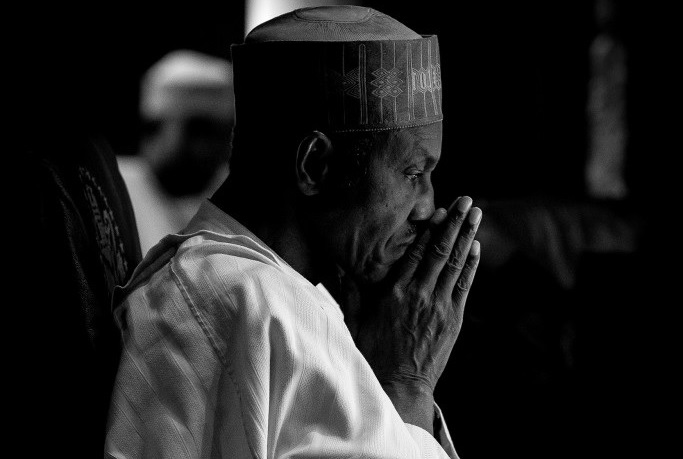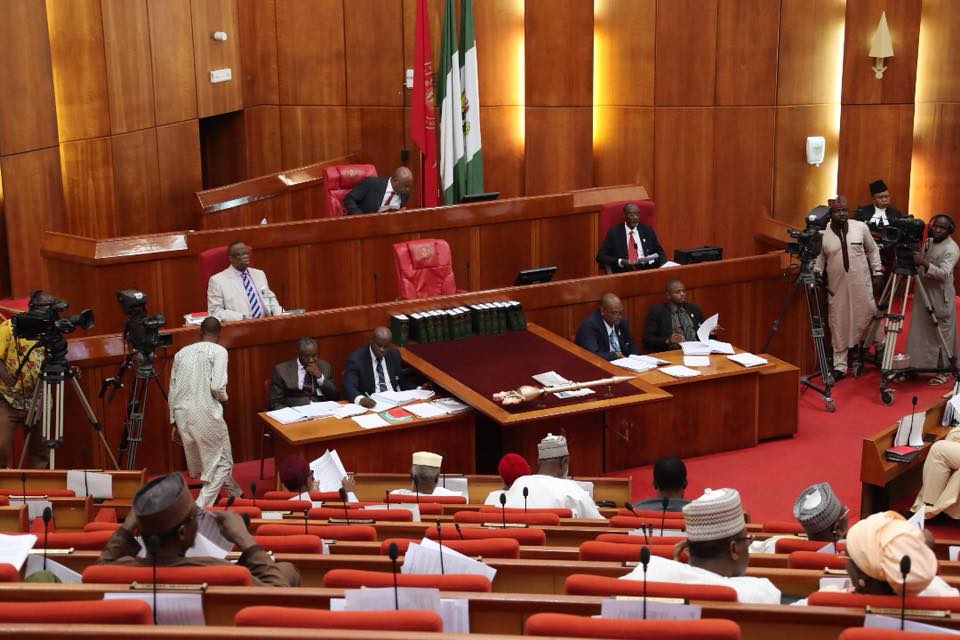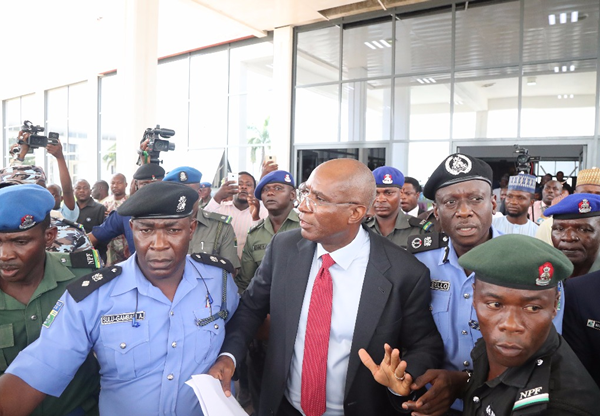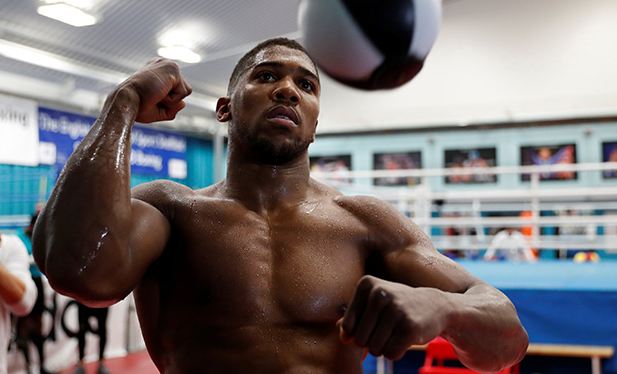The US government’s 2017 Country Report on Human Rights Practices in Nigeria must be a source of concern to President Buhari and the country in general. The 48-page executive summary of the report, which was released recently by the country’s State Department (the federal executive department that advises the President and represents the US in international affairs and foreign policy issues), was generally thumbs down for the Buhari government on human rights practices. The full executive summary can be accessed via this link.
According to the report, the “most significant human rights issues included extrajudicial and arbitrary killings; disappearances and arbitrary detentions; torture, particularly in detention facilities, including sexual exploitation and abuse; use of children by some security elements, looting, and destruction of property; civilian detentions in military facilities, often based on flimsy evidence; denial of fair public trial; executive influence on the judiciary; infringement on citizens’ privacy rights; restrictions on freedoms of speech, press, assembly, and movement; official corruption; lack of accountability in cases involving violence against women and children, including female genital mutilation/cutting and sexual exploitation of children; trafficking in persons; early and forced marriages; criminalization of status and same-sex sexual conduct based on sexual orientation and gender identity; and forced and bonded labour” (p.1).
What is significant is that even the government’s signature war against corruption received thumbs down. According to the report:
“Although the law provides criminal penalties for conviction of official corruption, the government did not implement the law effectively, and officials frequently engaged in corrupt practices with impunity. Massive, widespread, and pervasive corruption affected all levels of government and the security services. The constitution provides immunity from civil and criminal prosecution for the president, vice president, governors, and deputy governors while in office. There were numerous reports of government corruption during the year” (p.29).
Advertisement
“In its pursuit of corruption, the EFCC often did not observe all pertinent due process safeguards. In November the Economic Community of West African States Court of Justice declared unlawful the arrest and detention in 2015 of former national security adviser Sambo Dasuki. A court ordered him released on bail in a case brought by the EFCC for the alleged diversion of 13.6 billion naira ($43.2 million) intended to purchase military material during the Jonathan administration. Despite the court order, he remained in detention.”
It must be underlined that the report is not an assessment of only the Buhari government. State governments, local governments and some of our cultural practices were also not spared. According to the report:
“State and local governments forcibly evicted thousands of residents and demolished their homes, generally without sufficient notice or alternative compensation, and sometimes in violation of court orders. In March and April, for example, the Lagos State Government demolished houses in Otodo Gbame, a fishing village along the Lagos lagoon, despite a Lagos State High Court order forbidding the demolition and ordering the parties to explore an out-of-court settlement” (p.16). Again in “some states children accused of witchcraft were killed or suffered abuse, such as kidnapping and torture. So-called baby factories operated, often disguised as orphanages, religious or rehabilitation centres, hospitals, or maternity homes” (p.37).
Advertisement
There is however something soothing in the report which supporters of the Buhari government may find useful – the report does not seem to buy into the widespread allegation that Buhari has been clannish and discriminatory in political appointments and the distribution of other privileges. According to the report:
“The constitution requires the government to have a ‘federal character’, meaning that cabinet and other high-level positions must be distributed to persons representing each of the 36 states or each of the six geopolitical regions. President Buhari’s cabinet appointments conformed to this policy” (p.40). Despite this and an acknowledgement that the country’s press and academia enjoy relative freedom, the overall tone of the report is damning and negative.
It is quite usual in this country for those whose opinions or politics are not validated by this type of reports to either plead ‘Nigerian exceptionalism’ or hype their nationalism by questioning why a foreign power should tell us how we should go about our business (never mind that such pseudo-patriots will very proudly flaunt such foreign reports if they validate their opinions and political inclinations). While contesting such reports may have a place in the politics of not having one narrative dominate the political space, we must also not lose sight of the useful lessons from such reports especially as the report is not significantly different from the reports of Human Rights Watch and Amnesty International during the period. Some of the useful lessons to be learnt from the report include:
One, the State Department’s annual Country Reports on Human rights Practices are widely read documents, with more than one million readers estimated to access the reports online every day. This means that a huge number of people buy into the information about countries contained in the reports.
Advertisement
Two, the information in the reports are usually used to brief US presidents and Senior US government officials, including the US Secretary of State, before meetings with foreign heads of states and the civil society. Over 40 years ago, the U.S. Congress passed a law requiring the Secretary of State to prepare these reports and transmit them to the Congress each year.
Three, non-governmental organizations, the United Nations and other international bodies rely on the reports’ data in evaluating the human rights records of countries. This may explain why it may seem to some Africans that Western governments and institutions tend to have herd mentality. For instance, in recent times major Western media houses – the Financial Times, Washington Post, The Economist and others – are not exactly falling over the country either on its human rights records or its fight against corruption.
Four, academics on human rights use them as research tools while businesses and commercial organizations use them in risk analysis for international investment and business development. This means it will be naive to waive aside such reports especially at a time the country desperately needs foreign investors and friends.
Five, these reports influence Western governments’ and Western media’s attitude towards candidates in elections. It is true that there is the principle of non-interference in the internal affairs of sovereign states, but it is equally true that the doctrine of ‘Need to protect’ is often used by the Western powers to justify their ‘doctrine of non-indifference’ in the internal affairs of several developing countries. So with President Buhari declaring his interest in seeking re-election, these reports could influence the stance of Western governments and the Western media houses on his candidacy – depending on who his key opponents are. Was it not an open secret that Western countries like USA and Britain did want Jonathan to continue in office while major media houses like The Financial Times openly endorsed Buhari? Therefore these reports, if not well managed, could be among Buhari’s very powerful invisible opponents in the 2019 elections.
Advertisement
Six, should we swallow hook, line and sinker whatever reports Western governments and institutions produce about us? That is not my argument because there have been lingering interrogation of the methods used by groups like Human Rights Watch and Amnesty International in gathering the information they use in writing their reports. For the State Department’s Country Reports on Human rights, every U.S. embassy has a human rights officer who gathers information from the host government through media reports, local nongovernmental organizations and other sources. True, the information they gather and their report may be subjective and may miss certain local nuances that guide state policy. It is equally true that in countries with fairly free press such as ours, the incidence of human rights abuses may be exaggerated because of the freedom to report such abuses and challenge them robustly in both the social media and the law courts. Despite these, I feel the challenge for the country’s leadership is to ensure that there are also sufficient good records to balance whatever negative reports the country gets, in particular about progress being made in identified issues in the past. In the case of the 2017 report, there was little or nothing that was found praiseworthy in the country’s human rights practices or the fight against corruption. In fact, the reports damnation of the EFCC vindicates those of us who have been consistently critical of the anti-graft agency’s ‘gra-gra’ mode of fighting corruption.
On balance, I actually feel that given Buhari’s authoritarian past (and also when compared to Obasanjo’s civilian government), his government has not been as dictatorial as feared. What may have happened is that the government’s overzealous responses to a few perceived opponents brought up memories of his military dictatorship and subsequently shape the aggressive responses to them. This is why it benumbs me why the government has failed to realize that the continued detention of former national security adviser Sambo Dasuki and the Shi’a Muslim cleric Ibrahim Yaqoub El Zakzaky is boomeranging on it while turning them into martyrs (or radicalizing their followers in the case of El Zakzaky). I thought this is one of the lessons the government should have learnt from the mismanagement of the detention of Nnamdi Kanu of IPOB.
Advertisement
Add a comment







